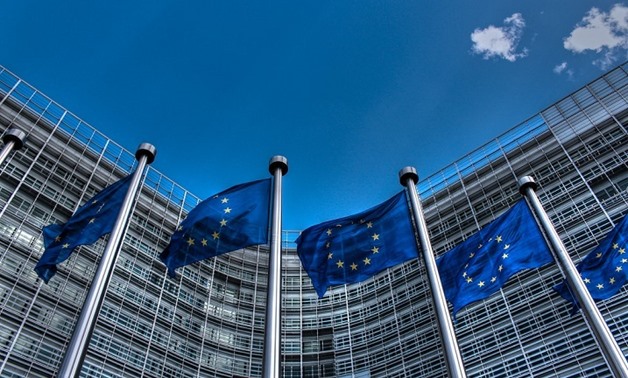
The European Union is composed of 27 diverse member states. Cumulatively, the EU aims to cut its greenhouse gas emissions to 5-20% of 1990 levels by 2050. Over 20% of the EU financial budget between 2014 and 2020 has been allocated to climate action. Over
CAIRO – 3 January 2019: The European Union expressed its strong concern about Turkey’s Grand National Assembly’s decision on Thursday, to authorize military deployments in Libya.
The EU reiterated its firm conviction that there is no military solution to the Libyan crisis, according to statement published on its official website, Friday.
“Actions supporting those who are fighting in the conflict will only further destabilize the country and the wider region. It is imperative for all international partners to respect fully the UN arms embargo and to support the efforts of the United Nations Special Representative Ghassan Salamé and the Berlin process, as the only avenue towards a peaceful, stable and secure Libya. The EU will maintain an active engagement in support of all de-escalatory measures and steps leading to an effective ceasefire and the resumption of political negotiations.” The EU stated.
On Thursday, Turkey’s Parliament voted for Turkish President Recep Tayyip Erdogan’s proposal to send Turkish troops to Libya, which is expected to deepen the Libyan crisis and mount tensions in the Middle East and North Africa.
Turkey’s ruling Justice and Development Party (AKP) and the far-right Nationalist Movement Party (MHP), which constitute the majority of the Parliament, supported the bill, while the opposition, the Peoples' Democratic Party and the Republican People's Party stood against it.
The bill, which aimed to give one-year mandate to Erdogan to send troops to Libya, says the objective of sending troops is to “protect” the Turkish national interests against security risks posed by “illegal armed groups in Libya," in indication to the Arab-supported Libyan national army led by Khalifa Haftar.
Egypt strongly condemned, the Turkish parliament approval of a memorandum of understanding presented by the Turkish president to send military forces to Libya.
The Foreign Ministry affirmed in a statement that the MoU, inked between Chairman of the Libyan Presidential Council (PC) Fayez al Sarraj and the Turkish government on security and military cooperation, is ‘null and void’.
The Ministry’s statement highlighted the blatant violation of the Turkish parliament’s move to all the international accords and UNSC resolutions, especially 1970 resolution, issued in 2011, which created Libya Sanctions Committee and banned any arms supply to and military cooperation with the war-torn North African country unless such actions were approved by the committee.

Comments
Leave a Comment